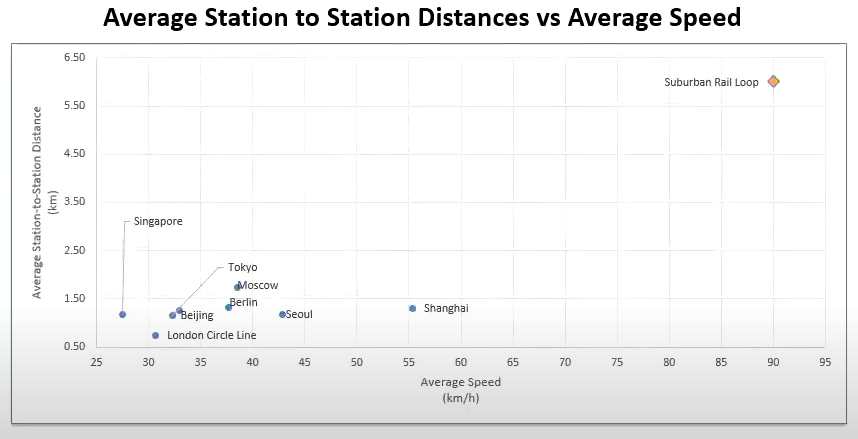
Presentations on Melbourne's #SuburbanLoop at a recent Institute of Transport Engineers meeting show the Loop is wildly different from every other rail loop worldwide.
The great SRL experiment: a thread ...
1/12
@MelbUrbanist @NGruen1 @MarionTerrill @inframagoz @urbanizationist
The great SRL experiment: a thread ...
1/12
@MelbUrbanist @NGruen1 @MarionTerrill @inframagoz @urbanizationist
Graham Currie, Prof of Public Transport at Monash University and an SRL sort-of-supporter, sensibly wants more city centres in Melbourne ("polycentricity"). But the SRL is "rather expensive" – he expects more than $125bn, cf original $50bn max.
His slides are WOW ...
2/12
His slides are WOW ...
2/12
Melbourne's #SuburbanLoop is a huge loop because Melbourne is a huge, spread-out city (that's the SRL up in the right-hand corner). End result: the SRL travels through relatively very low-density territory.
3/12
3/12

And so because Melbourne's #SuburbanLoop travels through very low-density territory, estimated daily ridership per kilometre is lower than for other cities. (SRL is in the lower left here.) "Kilometres means cost", Currie notes.
4/12
4/12

Distances between stations on Melbourne's #SuburbanLoop are way higher than for other cities. The SRL hopes to make up for that with higher speeds, though Currie thinks speeds will be lower than shown here. (SRL upper RH again.)
5/12
5/12

Melbourne's #SuburbanLoop "will be the furthest out loop in the world". (It's upper right in this slide too.)
Remember, these slides come from an SRL *supporter*.
This is powerful evidence that, as Currie says, "the project is different". It's a $100bn+ transport experiment.
6/12
Remember, these slides come from an SRL *supporter*.
This is powerful evidence that, as Currie says, "the project is different". It's a $100bn+ transport experiment.
6/12

Second presenter at the ITE meeting, Sydney Uni's Prof John Stanley, is less sympathetic to the SRL: focusing on transport misses 75% of the task of creating polycentric cities. Clusters need good catchments, and investments in their competitive strengths.
7/12
7/12
Plan Melbourne's clusters and "20-minute neighbourhoods" are popular, but need cluster development, local public transport (mostly high-frequency buses) and supportive (high) densities – around 25 dwellings per hectare.
But there's an elephant in the tunnel, and it's ...
8/12
But there's an elephant in the tunnel, and it's ...
8/12
... debt. Stanley quotes S&P (if you find them credible) saying Vic's fiscal position is worst it has seen, including in 1980s.
Stanley's verdict: Do SRL only when you can push densities up to the right levels. Develop the clusters; don't spend huge sums linking them weakly.
9/12
Stanley's verdict: Do SRL only when you can push densities up to the right levels. Develop the clusters; don't spend huge sums linking them weakly.
9/12
3rd speaker, RMIT's Prof Michael Buxton, makes more points:
- There's no real evidence that activity centres need to be linked up.
- Govt studies say SRL would change net Melbourne car travel by just 0.83 %.
- Govt says this will help deal with 8m population. Nope.
10/12
- There's no real evidence that activity centres need to be linked up.
- Govt studies say SRL would change net Melbourne car travel by just 0.83 %.
- Govt says this will help deal with 8m population. Nope.
10/12
The Institute of Transport Engineers audience was pretty unconvinced about the case for this $100bn+ SRL experiment, once these points were made.
11/12
11/12
https://twitter.com/michhornstein/status/1623469919903043584
Full Institute of Transport Engineers meeting audio here (with some interruptions, but gives you the gist). It includes interesting responses to questions:
12/12
12/12
• • •
Missing some Tweet in this thread? You can try to
force a refresh




